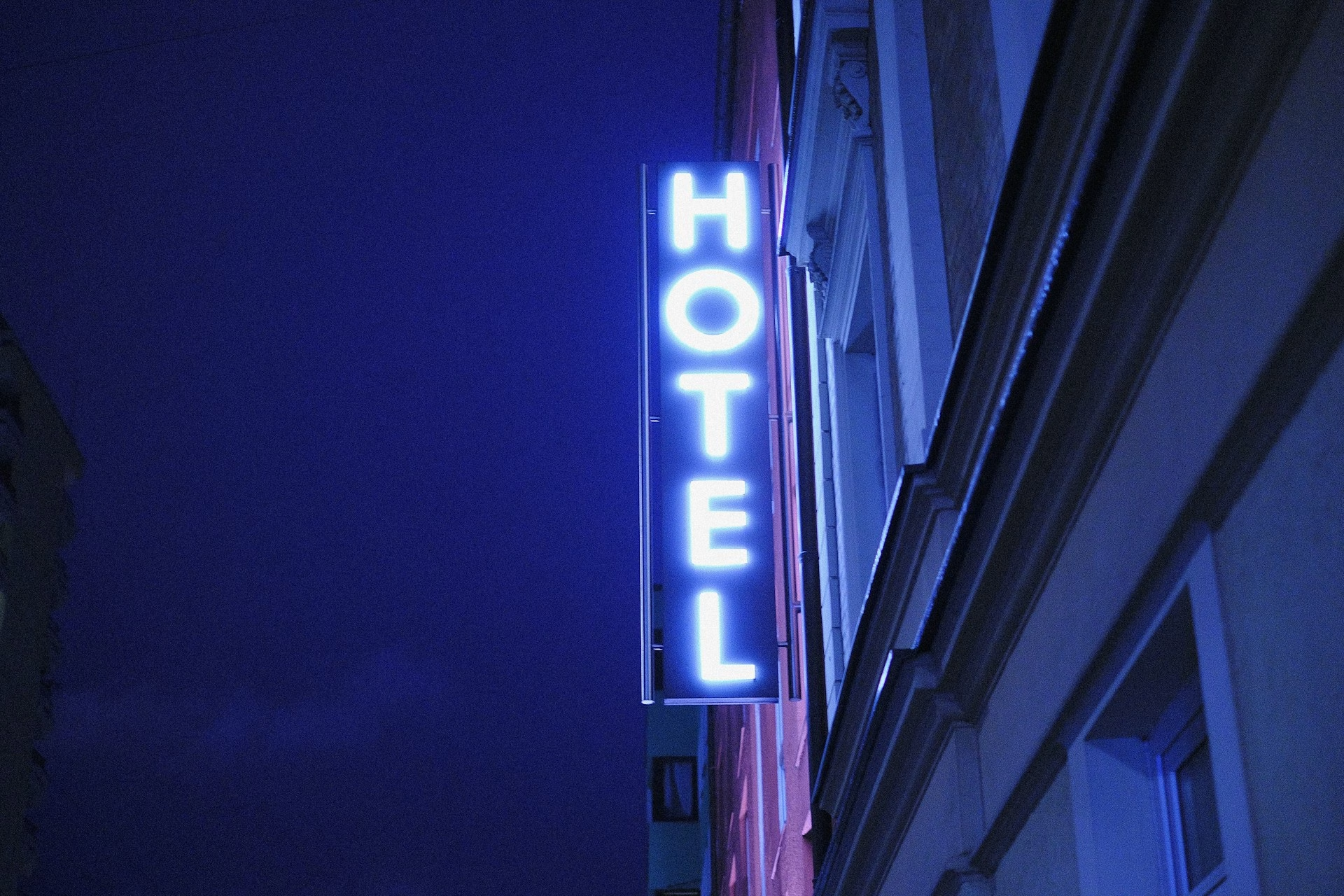When you think about booking a hotel, names like Marriott, Hilton, or Best Western might come to mind. These are examples of hotel brands, a central component of the hospitality industry that influences how travelers choose their accommodations. Whether you’re a hotelier looking to grow your business or a traveler seeking the perfect vacation, understanding how hotel brands work can provide valuable insights. In this blog, we explore the world of hotel brands, their structure, strategies, and future trends, and show how Ezy Hotel, a Switzerland-based hotel marketing agency, can help hoteliers succeed in this competitive environment.
Introduction to Hotel Brands
What Are Hotel Brands and How Are They Defined?
Hotel brands are unique identities created by hotel chains or individual hotels to stand out in the market. Think of them as a promise—a promise of quality, experience, and consistency. For example, when you book a stay at Marriott, you expect a certain level of service, whether in New York or Tokyo. Hotel brands, as they’re called in German-speaking regions like Switzerland, are defined by their logos, design, customer service, and target audience, such as luxury travelers or budget-conscious families.
Why Are They Important for the Travel Industry?
Hotel brands play a major role in the travel industry. They help travelers make quick decisions by offering familiarity and trust. A family might choose a Hilton because they know the brand provides reliable service, while a business traveler selects an IHG property because it caters to professional amenities. For hoteliers, being part of a well-known hotel brand can increase visibility and attract more guests, especially in competitive markets like Switzerland, where tourism is booming. This is where Ezy Hotel comes in, supporting hotels to boost their online presence and drive direct bookings.
The Historical Development of Brands in Hospitality
The concept of hotel brands dates back to the early 20th century. In 1919, Conrad Hilton bought his first hotel, laying the foundation for the Hilton brand. A few years later, in 1927, Marriott started as a root beer stand before evolving into a global hotel brand. Over the decades, these hotel brands grew by standardizing services, expanding globally, and appealing to different types of travelers. Today, hotel brands are a cornerstone of hospitality, with chains like Accor and Wyndham operating thousands of properties worldwide.
The Structure of Hotel Chains
Hotel Brands vs. Independent Hotels: A Comparison
Hotel brands and independent hotels operate differently. Hotel brands are part of larger chains that offer consistency across locations, shared resources, and global marketing. Independent hotels, on the other hand, have more freedom to create a unique identity but often struggle with visibility. A small Swiss hotel, for example, might have a charming, local atmosphere but could benefit from the global reach of a hotel brand like Best Western—or from a partnership with Ezy Hotel to enhance its digital marketing strategy.
Franchise Models: How They Are Organized
Many hotel brands operate on a franchise model. In this model, a hotel owner pays a fee to use the brand’s name, systems, and marketing. A hotel in Zurich, for instance, might operate as a Choice Hotels franchise, benefiting from the brand’s loyalty program while managing daily operations independently. This model allows hotel brands to expand quickly without owning every property.
The Role of Large Parent Companies (e.g., Marriott, IHG)
Parent companies like Marriott and IHG are the driving forces behind hotel brands. Marriott, for example, oversees brands like The Ritz-Carlton for luxury travelers and Residence Inn for extended stays. IHG manages Holiday Inn and Crowne Plaza, catering to both families and business travelers. These companies provide the infrastructure, technology, and marketing that help individual hotel brands succeed.
How Brands Build Their Identity
Branding Strategies: Design and Customer Experience
Hotel brands build their identity through design and customer experience. A luxury brand like Park Hyatt uses elegant decor and personalized service to convey an upscale feel. In contrast, a budget brand like Ibis focuses on simplicity and affordability. Consistent design—think logos, color schemes, and room layouts—helps guests instantly recognize the brand.
Targeting Audiences: Luxury, Midscale, or Budget
Every hotel brand targets a specific audience. Here’s a quick overview:
- Luxury: Brands like The Ritz-Carlton or Sofitel appeal to upscale travelers seeking exclusive experiences.
- Midscale: Brands like Hilton or Novotel attract business travelers and families looking for comfort without breaking the bank.
- Budget: Brands like Super 8 or Econo Lodge focus on affordability for cost-conscious guests.
Influence of Culture and Location on Identity
Culture and location shape a hotel brand’s identity. A Hyatt Regency in Tokyo might offer a sushi bar to reflect local culture, while one in Dubai could feature Middle Eastern design elements. This blend of global consistency and local flair helps hotel brands build a deeper connection with guests.
Operating Models and Management
Collaboration Between Hotel Brands and Owners
Hotel brands often collaborate with owners through management contracts or franchises. The brand provides marketing, training, and systems, while the owner handles daily operations. This partnership allows hotel brands to grow while ensuring properties meet brand standards.
Revenue Management: Pricing Strategies and Systems
Revenue management is critical for hotel brands. They use pricing strategies to maximize profits, adjusting rates based on demand. A Marriott in Geneva, for example, might charge higher prices during a major conference. Ezy Hotel’s Ezy Performance system can help hoteliers track these metrics to optimize pricing and boost revenue.
Quality Control Across Locations
Maintaining quality across locations is a challenge for hotel brands. Chains like Best Western rely on strict guidelines and regular inspections to ensure consistency. A guest should feel just as comfortable in a Best Western in Lucerne as in one in Los Angeles.
Technology and Innovation in Hotel Brands
Use of Apps and Digital Platforms
Technology is transforming hotel-brands. Many now offer apps for mobile check-in, room selection, and digital keys. Hilton’s app, for instance, allows guests to control their room’s lighting and temperature. These digital platforms make the guest experience seamless and convenient.
Artificial Intelligence for Personalized Service
Artificial intelligence (AI) is another game-changer. Hotel brands use AI to personalize guest experiences, such as offering recommendations based on past stays. A Hyatt might use AI to suggest a spa day to a guest who frequently books wellness packages, enhancing their stay.
Sustainability as Part of the Strategy
Sustainability is becoming increasingly important for hotel brands. Chains like Accor adopt energy-efficient lighting and water-saving systems to reduce their environmental impact. Guests appreciate these efforts, which align with the growing trend of eco-conscious travel.
Marketing and Customer Loyalty
Loyalty Programs: How They Work and Their Success
Loyalty programs are a cornerstone of hotel brand marketing. Marriott Bonvoy, for example, offers points for free nights and upgrades, encouraging repeat bookings. These programs create a sense of belonging and turn guests into brand ambassadors.
Social Media and Influencer Marketing
Social media is a powerful tool for hotel brands. Brands like Hilton partner with influencers to showcase their properties on platforms like Instagram. Ezy Hotel’s EzyAds service can help hoteliers launch targeted social media campaigns to reach the right audience and drive bookings.
Partnerships with Travel Companies
Hotel brands often collaborate with travel companies to boost visibility. IHG, for instance, partners with airlines to offer frequent flyer miles for stays. These partnerships expand a brand’s reach and attract new guests.
Challenges for Hotel Chains
Hotel Brands Competing with Alternatives like Airbnb
Hotel brands face competition from alternatives like Airbnb, which offer unique, local experiences. To compete, brands like Wyndham emphasize personalized service and loyalty perks to win back travelers.
Handling Crises like Pandemics
Crises like pandemics pose a major challenge for hotel brands. During the pandemic, many chains had to pivot, offering flexible cancellations and enhanced cleaning protocols. Quick adaptation was key to maintaining guest trust.
Adapting to Changing Travel Trends
Travel trends are constantly evolving. Today’s guests want authentic, sustainable experiences. Hotel brands must adapt by offering local tours, eco-friendly practices, and flexible booking options to stay relevant.
 Examples of Successful Hotel Brands
Examples of Successful Hotel Brands
Marriott: A Giant with a Broad Portfolio
Marriott is a giant among hotel brands, with over 3,700 properties worldwide. From luxury (The Ritz-Carlton) to budget (Residence Inn), Marriott serves every traveler. Its success stems from innovation and a strong loyalty program.
Hilton: Tradition Meets Modern Approaches
Hilton blends tradition with modernity. Founded in 1919, it now operates over 4,800 properties. Hilton’s focus on technology—like digital keys—and its Hilton Honors program make it a traveler favorite.
Boutique Brands: Individuality as the Key to Success
Boutique hotel brands like Hotel Indigo (part of IHG) emphasize individuality. These smaller properties offer unique designs and local experiences, appealing to guests seeking something beyond the standard chain hotel.
The Future of Hospitality
Trends like Ecotourism and Minimalism
The future of hotel brands lies in trends like ecotourism and minimalism. Guests are seeking sustainable stays and simple, uncluttered designs. Brands that embrace these trends will attract the next generation of travelers.
How Digitalization Is Changing the Industry
Digitalization is transforming hotel brands. From AI chatbots to online booking systems, technology makes the guest experience seamless. Ezy Hotel’s Ezy Rank SEO service can help hoteliers improve their online visibility, ranking higher on search engines and attracting more guests.
Global Expansion with Local Adaptation
Hotel brands are expanding globally but with a local touch. A Sofitel in Paris might offer French pastries, while one in Bangkok features Thai decor. This balance of global reach and local adaptation is key to future success.
Take Your Hotel to the Next Level with Ezy Hotel
Hotel brands are more than just names—they’re a promise of quality, consistency, and unforgettable experiences. Whether you’re a hotelier looking to compete with major chains or aiming to grow an independent property, Ezy Hotel can help. Our services, like Ezy Rank for SEO, Ezy Ads for social media marketing, and Ezy Performance for results tracking, are designed to boost your direct bookings and reduce reliance on OTAs. Ready to take your hotel to the next level? Contact us.
 +41 71 511 70 77
+41 71 511 70 77 info@ezyhotel.ch
info@ezyhotel.ch



 +41 71 511 70 77
+41 71 511 70 77 info@ezyhotel.ch
info@ezyhotel.ch

